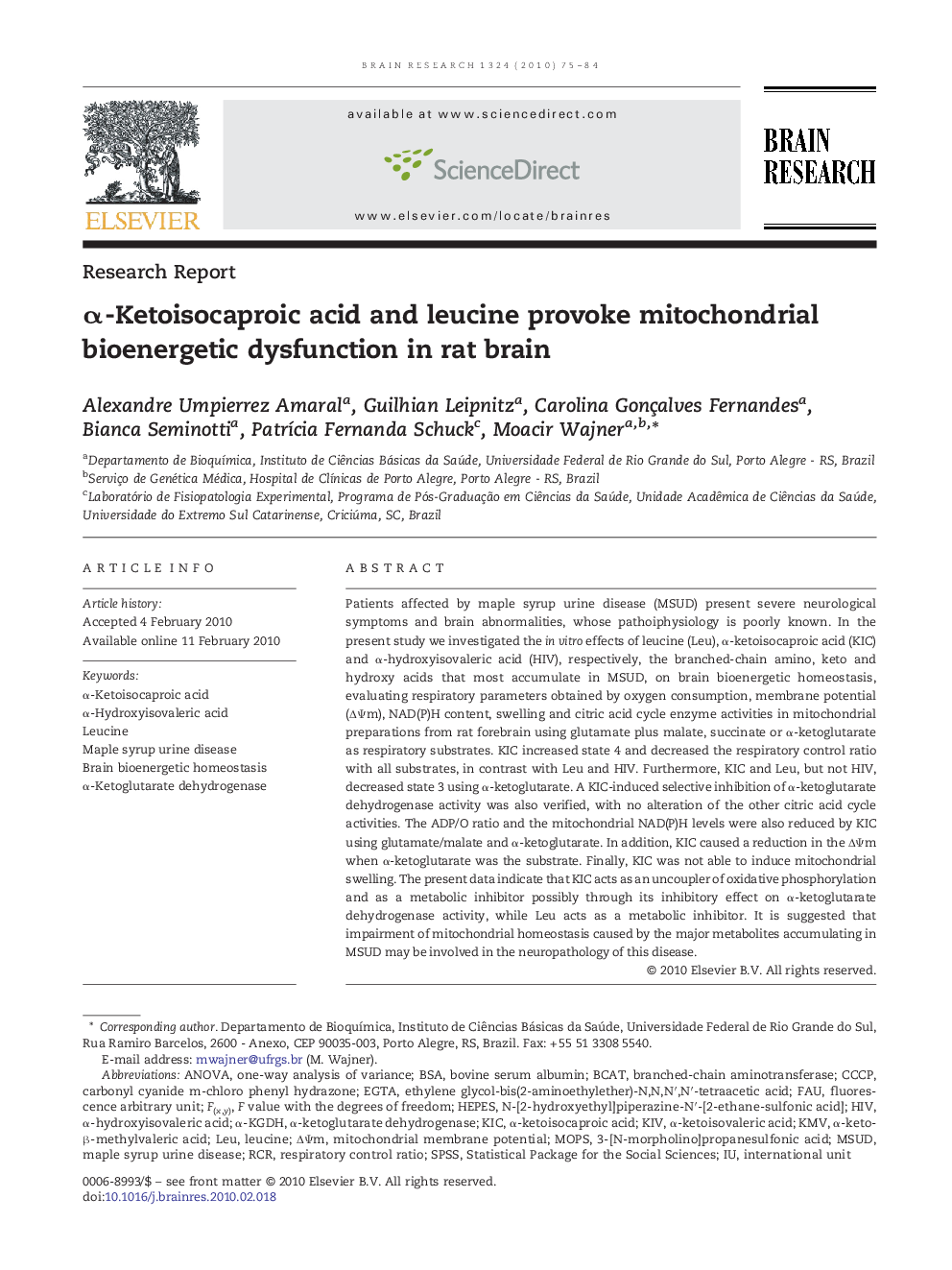| Article ID | Journal | Published Year | Pages | File Type |
|---|---|---|---|---|
| 4327216 | Brain Research | 2010 | 10 Pages |
Patients affected by maple syrup urine disease (MSUD) present severe neurological symptoms and brain abnormalities, whose pathoiphysiology is poorly known. In the present study we investigated the in vitro effects of leucine (Leu), α-ketoisocaproic acid (KIC) and α-hydroxyisovaleric acid (HIV), respectively, the branched-chain amino, keto and hydroxy acids that most accumulate in MSUD, on brain bioenergetic homeostasis, evaluating respiratory parameters obtained by oxygen consumption, membrane potential (∆Ψm), NAD(P)H content, swelling and citric acid cycle enzyme activities in mitochondrial preparations from rat forebrain using glutamate plus malate, succinate or α-ketoglutarate as respiratory substrates. KIC increased state 4 and decreased the respiratory control ratio with all substrates, in contrast with Leu and HIV. Furthermore, KIC and Leu, but not HIV, decreased state 3 using α-ketoglutarate. A KIC-induced selective inhibition of α-ketoglutarate dehydrogenase activity was also verified, with no alteration of the other citric acid cycle activities. The ADP/O ratio and the mitochondrial NAD(P)H levels were also reduced by KIC using glutamate/malate and α-ketoglutarate. In addition, KIC caused a reduction in the ∆Ψm when α-ketoglutarate was the substrate. Finally, KIC was not able to induce mitochondrial swelling. The present data indicate that KIC acts as an uncoupler of oxidative phosphorylation and as a metabolic inhibitor possibly through its inhibitory effect on α-ketoglutarate dehydrogenase activity, while Leu acts as a metabolic inhibitor. It is suggested that impairment of mitochondrial homeostasis caused by the major metabolites accumulating in MSUD may be involved in the neuropathology of this disease.
